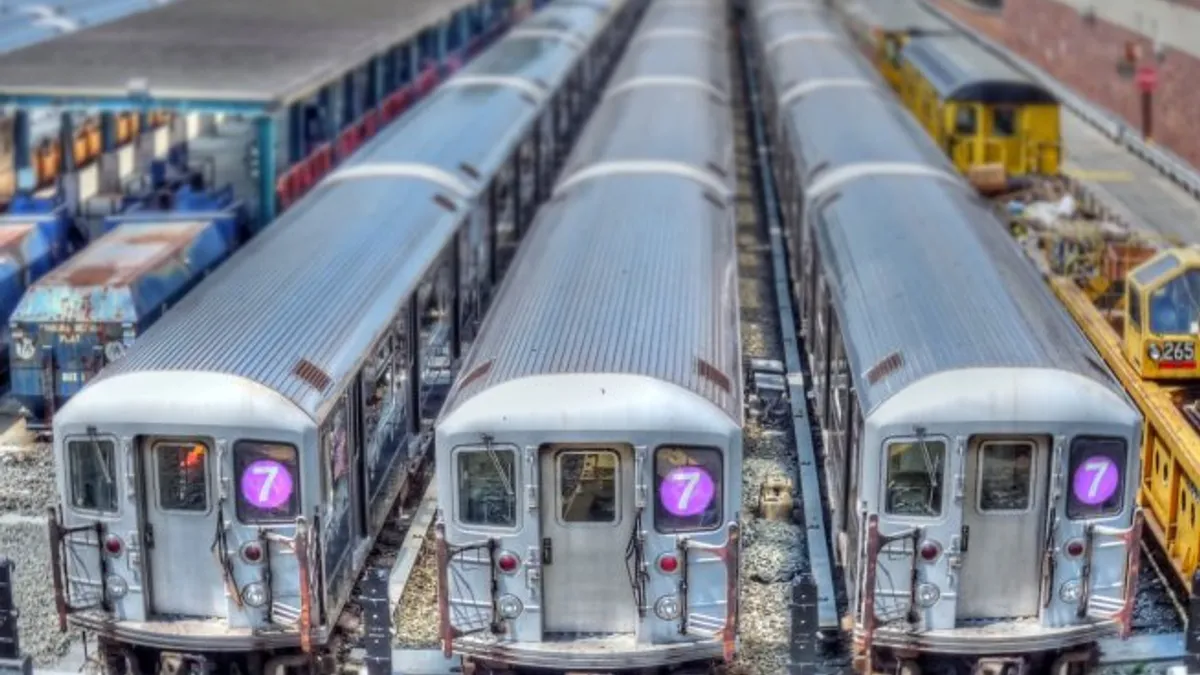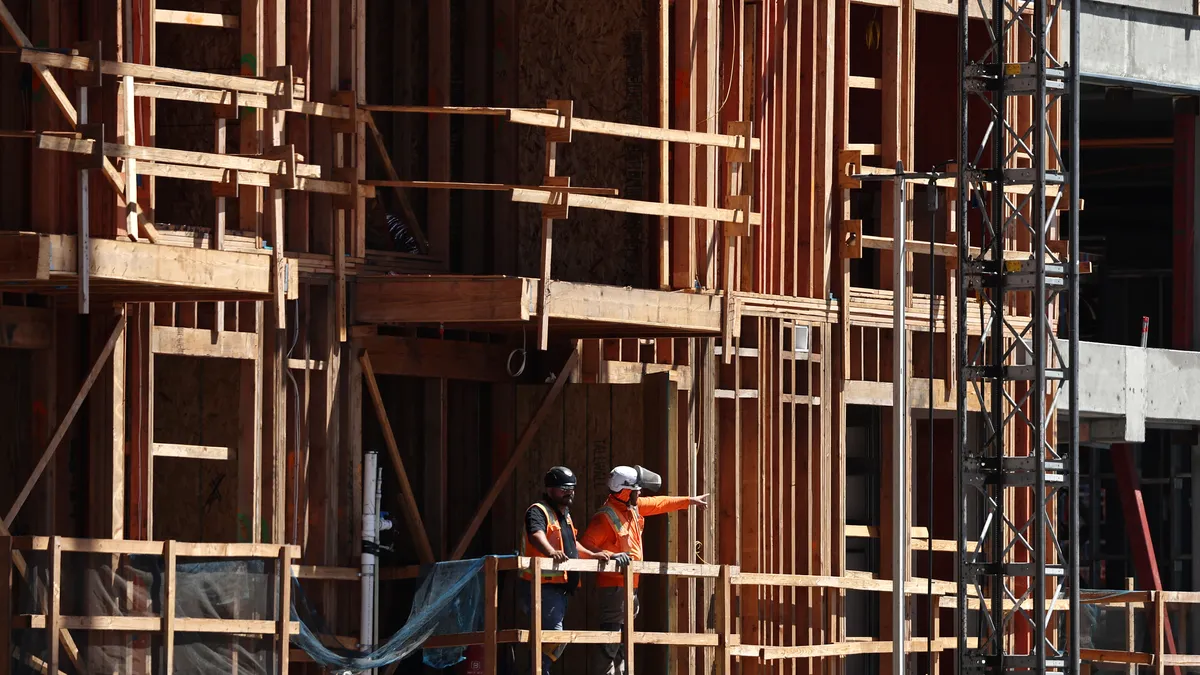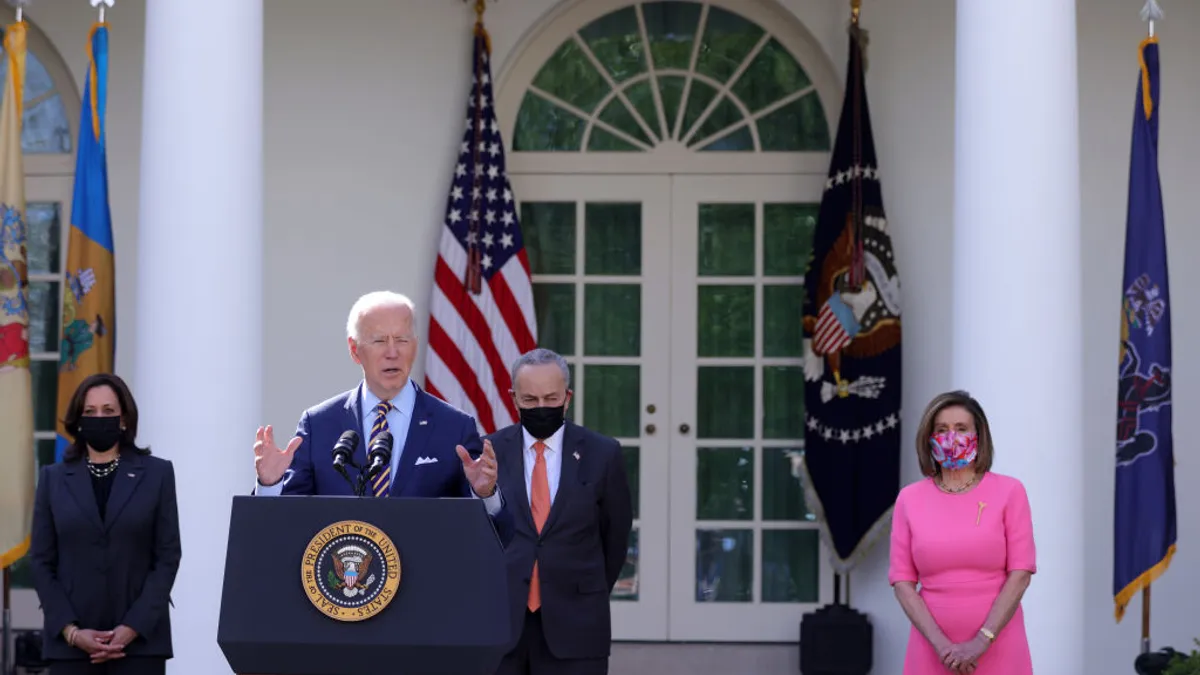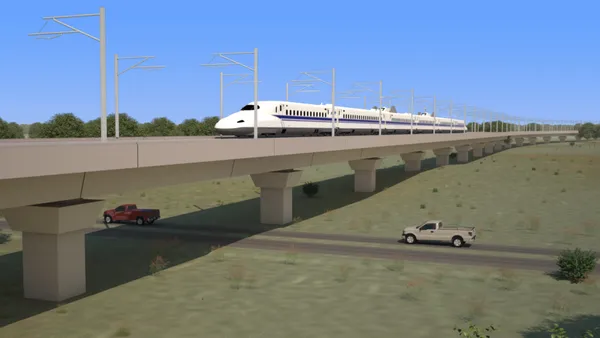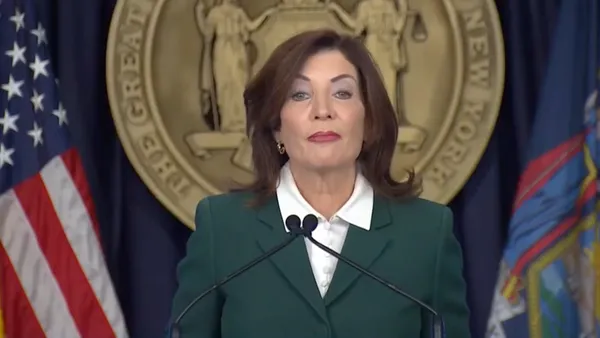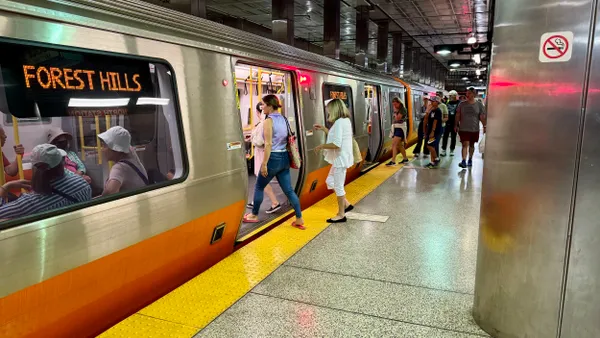Dive Brief:
- The New York Metropolitan Transportation Authority (MTA) is seeking proposals for a pilot program to improve mobility for workers commuting outside of normal working hours. The "Late Shift" pilot program could involve partnerships with ride-hailing companies like Uber and Lyft.
- The two-stage pilot will focus on areas in New York that are more than a half-mile from the nearest subway station and have limited bus service, arriving less frequently than every 20 minutes.
- The pilot will start with data collection and analysis, with the second phase focused on establishing the timeframe, location and business terms. The MTA plans to select its pilot partner by the end of March.
Dive Insight:
Late shift workers face unique transportation challenges in their commutes, since bus and train service runs less frequently or may be shut down entirely after traditional working hours. A 2019 report from the American Public Transportation Association (APTA) found that such workers make up 17% of metropolitan areas’ overall workforce, but they are 40% less likely to commute by public transit if there are inadequate connections.
Initiatives like the one New York is exploring can help grow the workforce by giving people the opportunity to take jobs with unconventional hours, while also helping existing workers keep costs down, said Darnell Grisby, APTA’s director for policy development and research.
"Public transit is affordable, it’s often cheaper than taking a taxi," he told Smart Cities Dive. "If we are addressing income inequality, public transit is one of the most effective ways to address that gap. It’s something we can do for working people that puts money back in their pocket."
As New York eyes pilot partners, it could take lessons from other cities that have taken steps to help late-shift workers. Detroit, for example, offers a $7 discount on Lyft rides for people departing buses between 11 p.m. and 5 a.m. Washington, DC has also offered discounted Lyft rides after hours and has explored other, similar partnerships, rather than extending service hours. Pittsburgh, on the other hand, made some routes run for a full 24 hours to serve night workers.
Extended hours can also add cost to cash-strapped agencies, and can occupy time that agencies need for routine maintenance, which has made discounted rides an appealing option. They can also get workers from transit stops to their homes, solving the first-mile, last-mile problem.
The MTA proposal has seen some pushback, however. In a statement, New York Council Member Ydanis Rodriguez said it was a "blatant disrespect to the Livery Taxi bases that have been serving those communities for decades." Rodriguez added that the city should focus on taxis rather than court Uber and Lyft, especially since Livery businesses already have "meaningful relationships" with communities.


